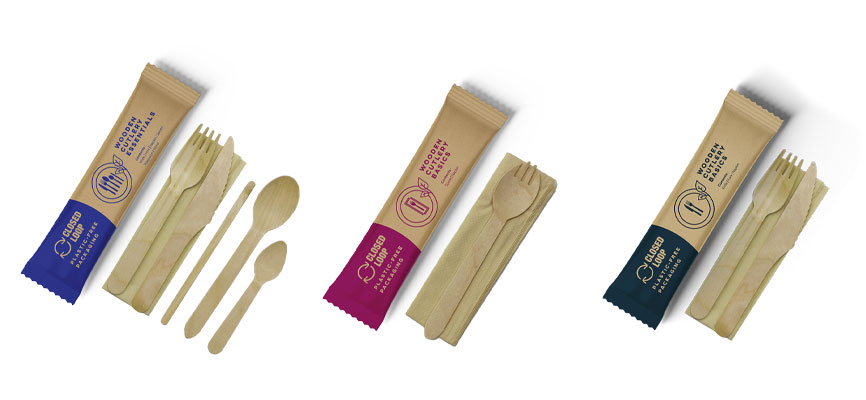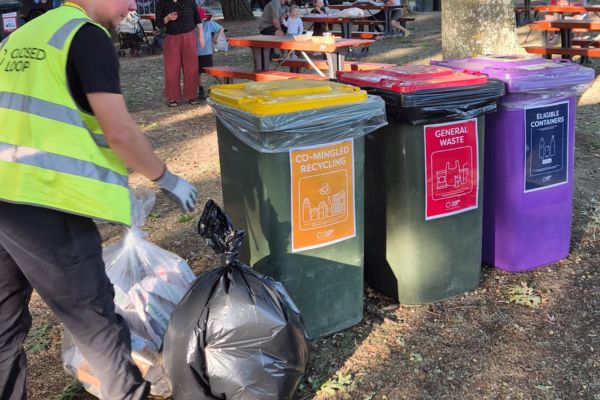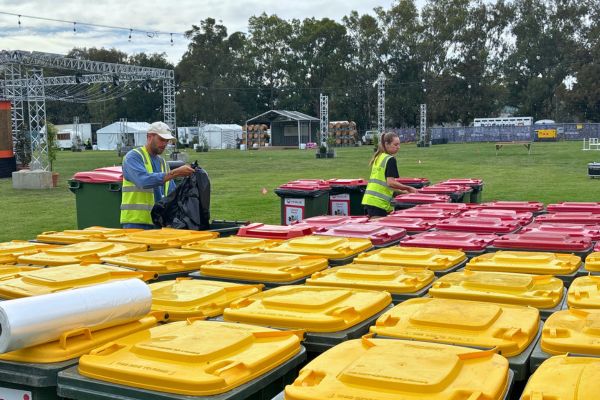Should I buy biodegradable cutlery?
With the single-use plastics ban in play across the nation, it’s important to find sustainable alternatives for cutlery and food service packaging for events or venues that are better for our planet. Ideally, reusable cutlery and items are best, but that’s not always possible.
It’s difficult to determine which single-use options are best for the environment – is ‘biodegradable’ or ‘compostable’ better?
What does biodegradable mean?
Biodegradable refers to how a product will break down over an unspecified amount of time. There is a lot of miscommunication and poor understanding around the term, which can lead to ‘greenwashing.’ By simply including the prefix ‘bio’, some consumers assume that the product is better for the planet, which is not always the case.
One would assume that biodegradable material will break down quickly and safely, however this is not the case.
Should I buy biodegradable cutlery?
Although the ‘biodegradable’ option may sound sustainable, it doesn’t necessarily mean that it will break down completely, quickly or safely. Unlike ‘compostable’, Australia has no mandatory standard for ‘biodegradable’. There is no testing or time limit for biodegradability in Australia.
Biodegradable cutlery will typically:
- end up as a contaminant for other waste streams (commingled recycling or organics)
- will not break down for many, many years
- break down into microplastics
If an item is labelled as both ‘biodegradable’ and ‘compostable’, it is recommended to clarify with the supplier how the product can be safely disposed. This may mean clarify on how to compost the product (home or industrial). Learn more about the different types of composting here.
Why is compostable cutlery more environmentally friendly?
There are two types of compostability certifications in Australia. Home compostable and industrial compostable certifications from the ABA (Australasian Bioplastics Association) are available in Australia and have been tested against Australian environments.
These rigorous and lengthy tests demonstrate that either:
- The product will have a min 90% biodegradation in 180 days with no toxic effect to compost, plants of earthworms in a home composting environment (certified home compostable)
- The product will have a min 90% biodegradation in 12 weeks in industrial conditions (certified industrial compostable)
Certified home or industrial compostable cutlery are an environmentally friendly alternative to plastic cutlery as it is proven to break down under certain conditions. Both practices can produce a compost which can be used to fertilise or improve soil quality for produce.
Biodegradable vs. Compostable
The main difference between compostable and biodegradable is that compostable has been tested to break down under certain time frames and conditions. Biodegradable is generally not tested against time frames and conditions.
Types of compostable utensils
Compostable cutlery and utensils are made from sturdy materials such as birchwood or bamboo, so they’re a good solution for single-use sustainable option (if reusable is not available).

The packaging ranges previously sold by Closed Loop, plus much more, can now be sourced through PAC Trading. Contact PAC via email at dispatch@pactrading.com.au or their website https://www.pactrading.com.au.








